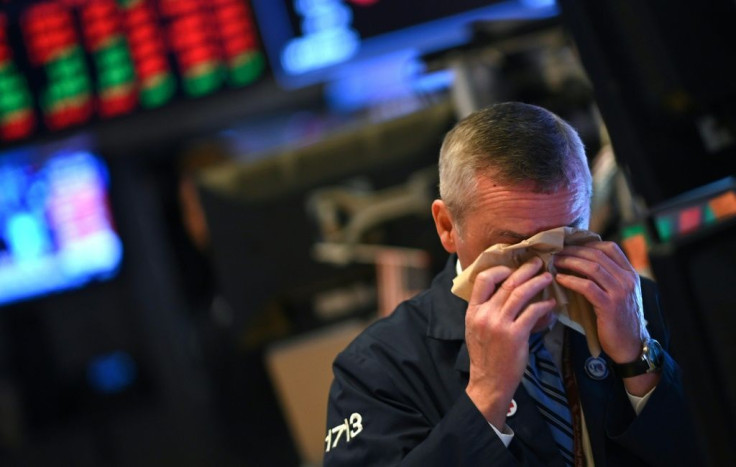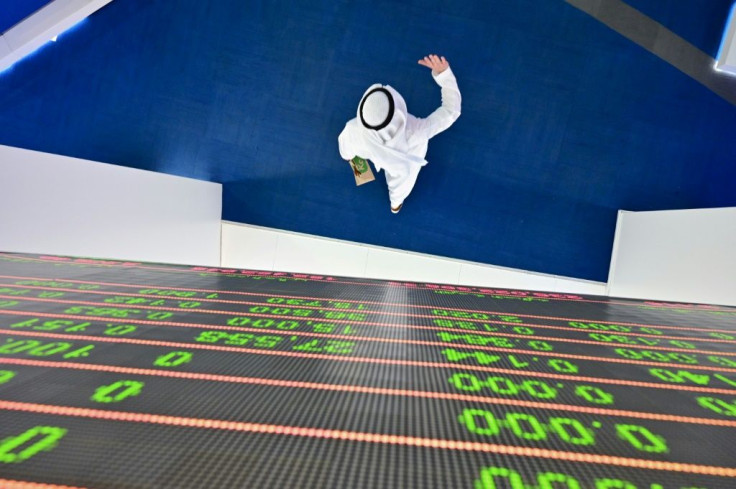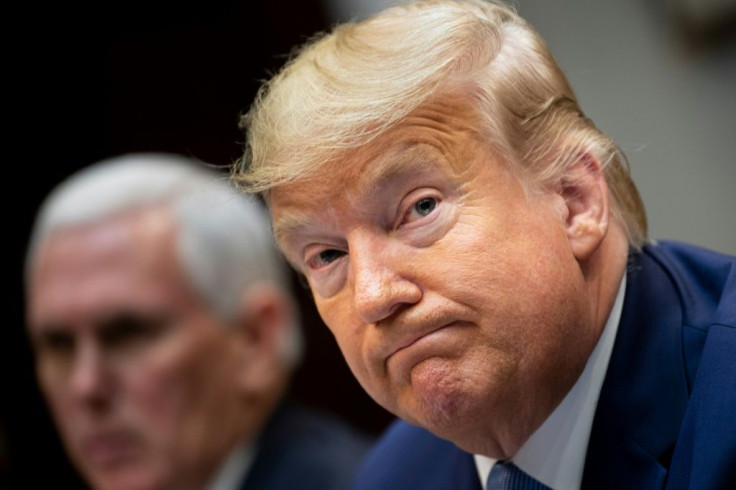World Steps Up Financial Fight Against Virus

Policymakers are staging emergency operations to inoculate the global economy against the coronavirus epidemic, but risk running into financial and political constraints.
Stimulus plans by US President Donald Trump's administration have helped inject some calm into panicky financial markets this week, yet face pushback from Congress.
Investors are looking to a meeting of the European Central Bank on Thursday for more reassurance, after the EU announced an investment fund of up to 25 billion euros ($28 billion) to support healthcare, jobs and small businesses.
That was in line with an appeal from the International Monetary Fund for "substantial targeted fiscal, monetary and financial market measures" around the globe.
The IMF is warning that global growth could now slip below last year's 2.9 percent, and fears of outright recession are mounting in some hard-pressed countries such as Italy.
The Bank of England on Wednesday vowed "all necessary further steps to support the UK economy" as it too staged an emergency rate cut in line with the US Federal Reserve.
But rates are already at rock-bottom in many countries following a decade of ultra-easy policy since the 2008 banking crisis, and meanwhile governments have been stepping in at the risk of violating their spending rules.
Italy on Wednesday vowed to spend up to 25 billion euros to fight off deeper economic contagion from the virus, and is urging creditors to go easy on struggling companies and homeowners.
Britain then outlined its own support package in its annual budget. Even Germany, long Europe's custodian of fiscal rectitude, says it is open to more spending.

The recent collapse in oil prices could help bring about its own stimulus to the global economy, but carries attendant risks.
"While the drop in oil prices will push inflation down in the near term, the bigger disinflationary risk could stem from the effect of the coronavirus on economic activity," argued Vicky Redwood, senior economic adviser at Capital Economics in London.
There is a risk that demand falls even more, she observed, as more companies and consumers go into lockdown against the virus.

"And with interest rates already low, it might not even take an especially deep recession to get trapped in deflation."
China, ground zero of the outbreak with more than 3,100 deaths, has cut interest rates and vowed a range of measures including tax cuts.
There is a glimmer of hope as the number of new infections in China starts to fall. But the damage is inescapable this quarter for both China and its trading partners.
Japan on Tuesday announced a second emergency package to offset the impact, including $15 billion in loan programmes to support small businesses.
The Bank of Japan, which meets next week, has assured investors it will "strive to provide ample liquidity and ensure stability in financial markets".
But while some of the biggest economies vow decisive action, the biggest of all is failing to show any immunity to its familiar infection of partisan feuding.
Trump promised to announce "major" economic measures on Tuesday and he made a rare trip to Capitol Hill for talks with his Republican party lawmakers.
The president's election-year priority to combat the coronavirus is a cut in payroll taxes. But Democrats are resistant, and even allies in Congress are nervous of its cost and effectiveness.
The bickering over priorities, and Trump's mixed messaging about how seriously to take the outbreak, is unlikely to help companies looking for clarity from their governments.
"There's a wider disparity in communication in the US than we're seeing in other parts of the world. That causes frustration," said Charlie Netherton, head of client advisory services at Marsh Risk Consulting.
"We need to see a coordinated response across geographic boundaries with regards to both containment and business stimulus," he told AFP.
Ultimately, however, drug companies may have a greater role to play in restoring economic stability than any government or central bank.
"To be blunt, no fiscal or monetary easing could have the same impact as a vaccine against COVID-19," ING economists said in a note.
© Copyright AFP 2024. All rights reserved.





















